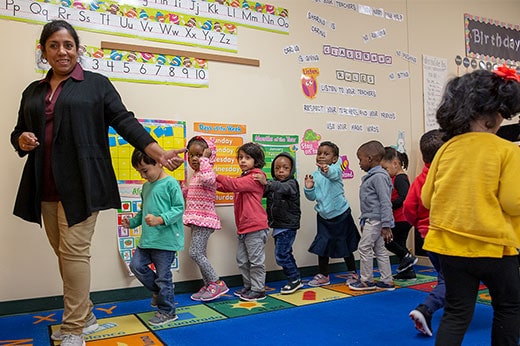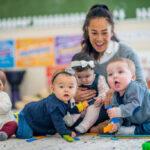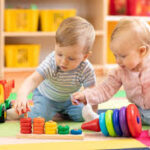
Importance of Kindergarten & How it Affects a Child’s Future Success
Importance of Kindergarten & How it Affects a Child’s Future Success
Children must develop their life skills and a solid emotional attachment during their formative years to
prosper in the long run. To improve children’s long-term results, promoting and developing these talents
and strengthening families is crucial.
✓ More Profound Parental Involvement
An innovative, strength-based parent education program that supports families and parents has
effectively reduced child abuse while enhancing parent-child interactions. These programs strongly
emphasize good parenting and child conduct, involve parents in their children’s growth, and teach stress
management techniques.
✓ Stability of Emotions
According to research, critical emotional, cognitive, and behavioral skills are developed at a young age.
These fundamental abilities are crucial for eventual success and school transition.
However, many young children are not acquiring these skills at high levels. For instance, there are
noticeable disparities in young children’s vocabulary abilities even before they start school, at around
three years old.
Additionally, as they grow up, many kids find it challenging to develop self-regulation abilities — the
ability to manage their thoughts, feelings, and conduct —. According to a recent study, preschool is
where more kids are expelled than between kindergarten and the 12th grade.
Researchers have suggested that young toddlers increasingly lack self-regulation or self-control to
explain this troubling finding.
✓ Creative Activities With Ease
It has been demonstrated that teaching preschoolers how to play games that require them to stop,
think, and the act would dramatically boost their development of these skills. For instance, engaging in
mentally stimulating movement and music games with your child is a terrific approach to promoting
healthy parent-child relationships and aiding in developing critical self-regulation abilities.
The game Freeze!, in which kids (and parents!) alternate between dancing quickly to rapid music and
slowly to slow music, is one to try. Children can then be taught to dance fast to slow and slow-to-fast
music by their parents.
Parents can add rules that ask kids to do the opposite of what is requested to make Simon Says! a more
challenging game for them to play.







